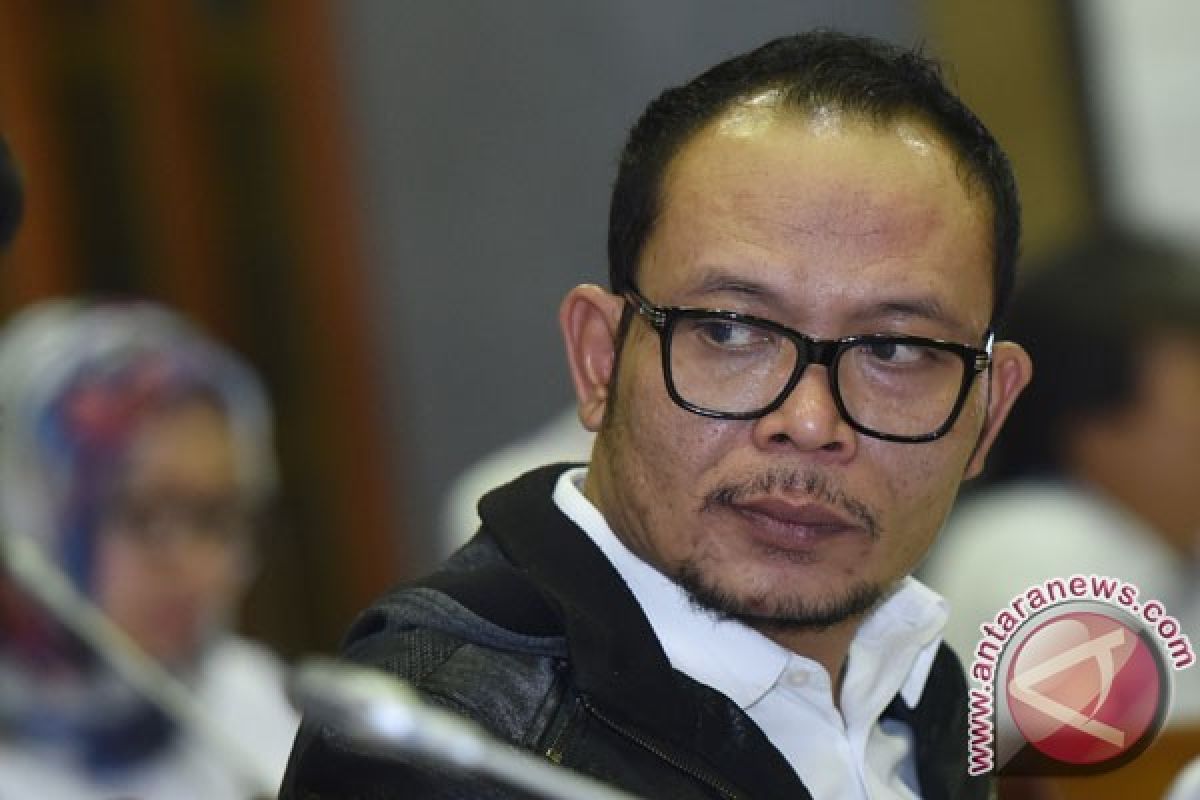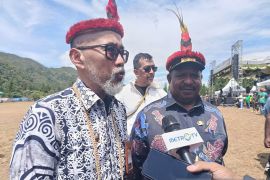"There is no need to worry about losing jobs to foreigners. The available job opportunities for local workers are far greater than those for foreign workers," Dhakiri said.Jakarta (ANTARA News) - The issue of an alleged influx of foreign workers into Indonesia has once again come up in public discourse and media reports.
The fear is that expatriates will take away employment from the millions of local workers who are still jobless.
However, the government through the Manpower Minister, Hanif Dhakiri, denied allegations that the number of expatriates in the country had surpassed all proportions after the issue of Presidential Regulation No. 20 of 2018 on the Recruitment of Foreign Workers
"There is no need to worry about losing jobs to foreigners. The available job opportunities for local workers are far greater than those for foreign workers," Dhakiri said here on Thursday.
"The issuance of the presidential regulation will not affect the number of foreign workers in Indonesia, because it only speeds up the process of recruitment so that it will become more efficient. There should be no worry. The larger proportion is still dominated by Indonesian workers, foreign workers only fill a small portion of the domestic work opportunities," he said.
The number of foreign workers in Indonesia was still very reasonable compared to the population of about 263 million people.
"I often convey to the public not to worry about foreign workers in Indonesia, the proportion is still very rational. Are there illegal foreign workers in Indonesia? Yes, they are. The government never denied that the illegal ones exist, but the government continues to crack down on illegal workers," said the Minister.
The number of foreign workers in Indonesia was 85,947 until the end of 2017. In 2016, the number was 80,375 and in 2015 it was 77,149.
This figure was not comparable with the number of workers from Indonesia abroad. "The numbers of Indonesian labourers in other countries are large. The Indonesian labour force, according to a survey of the World Bank, numbers 9 million overseas. Of them, 55 per cent are in Malaysia, 13 per cent in Saudi Arabia, 10 per cent in China-Taipei, six per cent in Hong Kong," he said.
The government, through the labour inspectors, police, immigration, local governments, would always take action against abuses committed by foreign workers. "The control scheme in the government is very strong, the supervision is continuously strengthened and the existing requirements are still strong. What is simplified is only the licensing procedures so as not to be convoluted," he said.
The government would refuse permission to any company seeking to recruit foreigners as blue-collar workers.
In the meantime, the Minister of Justice and Human Rights, Yasonna H Laoly, believes the issue of foreign workers has been too politicised.
"So, this expatriate issue has been too politicised. The Minister/State Secretary explained it to the House of Representatives` (DPR`s) Commission IX. I think, the issue about expatriates was deliberately exaggerated," said Laoly in Jakarta on Friday.
According to him, Presidential Regulation No. 20 Year 2018 on the Recruitment of Foreign Workers was aiming at making the process of recruitment of expatriates faster and transparent.
"We want the process to be faster and transparent, that is the purpose of the Presidential Regulation, After all, we need investment," said Yasonna.
"It is said that it will take away jobs from the Indonesian people. Will there be jobs if investment does not come in ? There will be no work. If the investment comes in, our people will join the work," said Laoly.
Take the case of turnkey projects, he said. The investors will use some foreign workers initially. But later, foreigners will be replaced by our people, according to Laoly.
Earlier, the Indonesian Ombudsman had issued a release naming ten provinces that employed the most foreign workers. These are Southeast Sulawesi, Central Sulawesi, East Kalimantan, Riau Islands, North Sumatra, Jakarta, Banten, West Java, East Java and West Papua.
"These are the provinces which have the highest concentration of foreign workers," said Ombudsman member for Natural Resources, Labour and Personnel Affairs, Laode Ida, in Jakarta on Thursday (April 26).
The information was based on an independent investigation conducted by the Ombudsman. However, the Ombudsman did not release the number of foreign workers in each of these areas. He said that 90 per cent of the expatriates who worked in Indonesia were blue collar workers in smelter factories.
"Foreign workers who are recruited should properly be for supervisor or manager level, but 90 per cent of them are in yellow (blue collar) hats," Ida said.
In addition, the Ombudsman also found that foreign workers were paid three times the salary of local labour. "The information in the field indicated that local workers are paid only 1/3 the salary of foreign workers," he said.
The Ombudsman asked the Ministry of Manpower to further tighten the terms of entry of foreign workers to Indonesia. The Ministry should establish an information technology system to integrate data on foreign workers. This was to ensure foreign workers were hired only in permitted areas. The ministry should also penalise employers who violated the rules, Ida said.
"There should be technology transfer from foreign workers to local workers, and if local workers already have skills, the foreign workers should be sent home," he said. There must be transparency in paying foreign workers` wages through national banks, to avoid losses to the country. "Payment by recruitment companies of expatriate salaries is directly transferred to their home countries," he pointed out.
(A014 /INE)
EDITED BY INE
(T.A014/A/KR-BSR/A014) 27-04-2018 19:50:36
Reporter: Andi Abdussalam
Editor: Heru Purwanto
Copyright © ANTARA 2018












